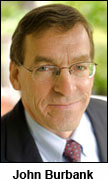OPINION
Yhteistyötä works: Finland’s model shows respect for all
(April 25, 2014) — I just returned from a trip to Finland to visit old friends. I brought home a bill from a hospital.
You may wonder how these two things connect. The bill from the hospital was for a friend of mine. She needed a new hip. So for five days in the hospital, the surgery, the surgeon’s salary, the artificial hip, and all the necessary care and medicine, she paid $224. That’s it. Period. No co-insurance , no donut hole for prescriptions, no premium, no co-pay.
The Finnish government takes care of the health care bill, and insures secure retirement pensions, at about 60 percent of your best five years of income. The government enables family leave to care for your kids for their first years of life, as well as child care with well-paid and educated teachers and caregivers. Of course there is free universal K-12 education, which is ranked the best in the world. University education is paid for, and includes a living stipend. As a worker, you get at least five weeks of vacation. Everyone gets universal paid sick days.
Some people would argue that such a system would push down economic activity. In Finland, this foundation of security enables private business activity. The World Economic Forum ranks Finland as the third most competitive economy in the world, ahead of the United States. Grant Thornton, a worldwide giant in business auditing, ranks Finland fifth in the world, thanks to its “business operating environment, economics & growth, science & technology, labour & human capital, and financing environment.”
Human values have helped to create this state of happiness, work and progress. Respect is one such value, universal in Finland. Respect for each other, from the person who settles your bill at the store, to the taxi driver, to the school teacher, to the small business entrepreneur, to the member of parliament, to the elite of big business. Respect is apparent and expected and it crosses occupations, income and education. Another element is a Finnish word which we seldom use here anymore: “yhteistyötä,” which means cooperation, community, coordination, solidarity. Listen to Finns talking, and “yhteistyötä” comes up over and over again. They know that they are all in this together.
Solidarity and respect are expressed in national policies for which everyone pays, with taxes, and through which everyone gains a certain strong sense of economic wellbeing. The uncertainties of life that we shoulder in America are replaced with the knowledge that everyone’s basic needs — be that health care, retirement, child care, university, technical school — will be there, for you, for your neighbors, for your children, for your brothers and sisters.
Finns know that this kind of system is not free. Pretty much everyone pays 20 percent of their income in taxes, and this can go up to 50 percent for incomes above $100,000. Everyone pays sales taxes, as much as 24 percent for things like televisions. Health insurance payments are 1.1 percent of income. Social security payments are about 5 percent.
Add all these payments together and the average Finn pays more in taxes than the average American. And gets a lot more back in return: the certainty of health care, retirement income, day care for young children, family leave, care for the old and ill, early childhood education and university as well. It is not all completely paid for by taxes, but the public portion makes the private costs much lower. Child care costs about $300 a month for an upper-income family. Mothers and fathers receive 80 percent of their compensation when they care for an infant. That partial compensation drops to 60 percent if the parent continues to care for her child at home for a second and third year.
Respect, cooperation, paying taxes and having a government that works for you. We can achieve all this in our own state and country as well. We have the history, knowledge, income and economic dynamism. We started the New Deal for Social Security. We enacted the GI bill so soldiers could gain higher education. We established Medicare so old people would have health care.
As Americans, we value family, hard work and looking out for each other. If we just stretch ourselves some, we can realize life, liberty, and the pursuit of happiness, for all of us. We won’t have to look across the ocean.
John Burbank is the executive director and founder of the Economic Opportunity Institute in Seattle. John can be reached at john@eoionline.org.






